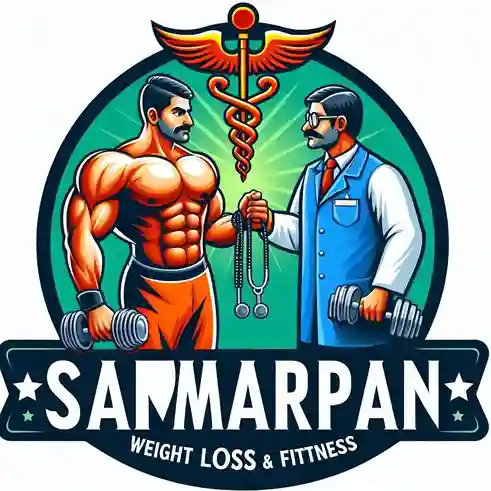How to Reduce Protein Farts: Tips and Tricks
A diet high in protein can cause excessive or odorous farts, which are known as protein farts. However, nonprotein components like sugars, carbohydrates, and fiber may cause a rise in flatulence, even if some proteins may worsen the odor.
Others think that eating extra protein will make them more prone to flatulence. The scientific literature now in publication, however, paints a more complex picture. Although eating certain proteins can affect the smell of gas, meals high in carbs that are hard for gut bacteria to digest are more likely to cause an increase in flatulence.
Protein farts: what are they?
The most important ingredient for building muscle and maintaining bodily functions is protein. However, overeating it or getting it from particular sources might cause digestive problems including gas and bloating. The term “protein fart” describes the foul-smelling gas that typically arises from eating a meal heavy in protein.
Your body breaks down sulfur-containing amino acids as it digests protein, especially from foods like red meat, eggs, and certain legumes. The unpleasant smell connected to protein farts is caused by gas produced by intestinal bacteria during this process, such as hydrogen sulfide.
This is particularly frequent when the protein is not completely broken down, which allows intestinal bacteria more time to ferment it and create foul-smelling gas. Despite being innocuous, protein farts can cause discomfort and social awkwardness. Making dietary changes and increasing your intake of fiber can facilitate digestion and lessen the frequency of these gassy episodes,” the expert continues.
Although protein by itself doesn’t cause flatulence, several of the other ingredients in protein supplements do. Lactose may be present in high concentrations in supplements made from casein or whey protein. Even those who routinely eat dairy products without experiencing any problems may fart if they drink a lot of lactose. Additionally, some protein powders include sweeteners like sorbitol and thickeners that make flatulence worse.
Why Do Protein Farts Occur?
You could see that eating more protein has an unwelcome side effect: more farting.
Farting generally occurs for two causes. One is that swallowing too much air causes the digestive tract to produce more gas. In the second scenario, food passes through the small intestine undigested, and in the large intestine, microorganisms break it down, causing gas to be released.
There isn’t much evidence to support the theory that the protein itself is the cause of protein farts in particular. Instead, specialists say it’s probably another molecule in the protein you’re choosing.
For instance, meals high in protein, such as cattle, eggs, pork, fish, and poultry, are high in sulfur, which the gut microbes convert to hydrogen sulfide, a rotten egg-like gas. Odorous farts may result from this fermentation process in the intestines.
Additionally, the body may have problems completely digesting another frequent element found in manufactured protein sources like protein shakes, powders, bars, or supplements, which can result in more (and unpleasant-smelling) farts. Some of those elements to watch out for are as follows:
Lactose (if you’re intolerant to it)
Sugar alcohols such as fiber, sorbitol, xylitol, and mannitol
Are They Typical?
A typical aspect of digestion is flatulence.
According to experts, it’s typical to fart 10–18 times a day, or maybe a little bit more. Because bacteria in the large intestine may emit sulfur during digestion, any farts that smell particularly bad are usually the consequence of a certain food you’ve eaten.
Protein farts and excessive farting might be painful or irritating, but they are usually not a reason for alarm.
Why can eating protein cause bloating?
When protein is not fully broken down in the stomach or small intestine, bloating results. Gas is a result of bacteria breaking down undigested protein when it enters the big intestine. This typically occurs with foods high in protein, such as red meat, eggs, or protein shakes, especially if your body has trouble digesting specific proteins, such as lactose (found in dairy products) or legumes. According to the expert, high-protein diets typically don’t contain enough fiber, which can cause constipation and slow down digestion, which exacerbates bloating.
A 2020 study examined how various diets affected bloating and was published in the Clinical and Translational Gastroenterol. The findings suggested that eating a lot of protein might make you feel bloated. It was observed, although, that this diet contained a lot of plant-based proteins, including beans, wheat, and nuts, which are thought to induce flatulence.
Why do odorous farts result from protein?
Because some amino acids, especially those found in meals like eggs, red meat, and cruciferous vegetables (broccoli, cauliflower), contain sulfur, protein farts have an unpleasant odor. Hydrogen sulfide, which has a strong, disagreeable smell, is released when these amino acids degrade. As long as protein remains undigested, the stomach bacteria have more opportunity to create foul-smelling gases.
You may be able to reduce bloating and the odor of gas connected to protein by making dietary changes, increasing your intake of fiber, and improving your digestion.
Methods for Avoiding Protein Farts:
Experts advise avoiding protein farts and farting in general in a few pretty easy methods.
Modifications to Diet
Your digestive health is greatly influenced by your food and eating habits. Because of this, medical professionals frequently recommend dietary adjustments to assist lessen farting and associated symptoms.
When it comes to protein farts, you might want to start by looking at the protein source you’re currently eating. Try creating protein shakes with water or dairy-free milk if lactose appears to be the cause of your protein farts. You might choose a plant-based protein powder or search for goods that use whey protein isolate, which has less lactose.
Experts advise minimizing or doing away with the following to lessen excessive farting in general:
- Cruciferous vegetables, including cauliflower, broccoli, and cabbage
- Black beans and other legumes
- Starches such as corn, wheat, and potatoes
- Lactose
- Carbonated beverages
- Gum chewing and hard candy
Certain meals that are heavy in carbs and have poor digestion are known as FODMAPs.
To get rid of more gas bubbles in the digestive tract, you may also try eating and drinking more slowly. To keep the digestive process flowing and to enhance farting, think about going for a 15-minute stroll after eating.
Alternatives Over-the-Counter
Protein farts and associated digestive problems may be relieved by a variety of over-the-counter (OTC) drugs.
Here are a few things to consider:
Simethicone: By dissolving the gas bubbles in the digestive system, products like Gas X or Alka-Seltzer that include this chemical will lessen bloating and possibly even farting.
Alpha-galactosidase: This enzyme, which is included in drugs like Beano, aids in the breakdown of poorly digested carbohydrates, hence reducing farting and associated symptoms.
The primary component of Pepto-Bismol, bismuth subsalicylate, is used to treat several digestive issues and may lessen farting.
Enzyme lactase: Drugs such as Lactaid or Dairy Ease are designed to aid in the digestion of lactose-containing meals and may help avoid lactose-related protein farting.
Digestive enzyme mix: Take a digestive enzyme blend such as FODZYME if you are sensitive to FODMAPs. Alpha-galactosidase, lactase and fructan hydrolase are among the enzymes in this product that target and break down FODMAPs, facilitating simpler digestion. Even though FODZYME is an over-the-counter medication, you might want to see your doctor before using it to treat FODMAP intolerance.
Supplements
For digestive health and symptoms like bloating and gas, several supplements are promoted. The following are some that could help reduce excessive farting:
Probiotics: These living microbes promote your gut and general health by balancing good bacteria in the gut microbiome. Probiotics may be able to lessen increased farting and soothe excessive gut fermentation in some situations.
Ginger: Ginger root has been used in traditional medicine to lessen flatulence and ease digestive issues. More study is required to determine how it impacts flatulence, even though it appears to be a potential treatment for gastrointestinal disorders.
Peppermint: This herb’s effects on digestive problems have been investigated, and some studies indicate that taking peppermint oil in capsule form might help reduce gas and other symptoms of irritable bowel syndrome (IBS).
Activated charcoal: Although there is conflicting data about the effectiveness of charcoal tablets for gas prevention, they are occasionally sold for this purpose. Consult a medical professional before attempting this option.
Before using any dietary supplements for digestive issues, it’s advisable to see a healthcare professional because they are not subject to the same FDA regulations as prescription drugs.
Changes in Lifestyle
Reducing protein farts may also be possible with a few little adjustments to your daily schedule. Here are some routines that can help maintain the health of your digestive system:
Control your stress levels: Studies have shown that stress can have an impact on the digestive tract, which may be a factor in unpleasant symptoms like protein farts.
Stay active: Increasing your regular physical activity levels, such as going for a walk or performing some moderate stretching, can help reduce and avoid frequent farts.
Think about when you consume protein: It might not be best for the digestive system to have a protein drink or a protein snack just before going out. Try consuming your protein after working out to reduce farting because studies indicate that it seems to have the same impact before and after a workout.
What amount of protein should a person consume each day?
As part of a diet consisting of 2,000 calories, people should take 50 grams (g) of protein per day, according to the Food and Drug Administration. They do point out, though, that a person’s daily value may differ depending on their caloric requirements. According to a 2017 study published in the Journal of Cachexia, Sarcopenia and Muscle, individuals may want to strive for 0.8 to 1.2 grams per kilogram of body weight per day.
Are farts made of protein healthy or bad?
Protein farts are not as dangerous as they are inconvenient.
When you first start using whey protein powders and snacks, you could have more flatulence. Additionally, some people may have discomfort and bloating, particularly those who have lactose intolerance or irritable bowel syndrome.
All dietary sources of lactose, including the majority of dairy-based protein supplements, should be avoided if you have lactose sensitivity.
But there are other adverse effects than flatulence. Acne is one of the other side effects of regularly consuming too much whey and casein.
You might wish to see a doctor if your flatulence persists after making dietary adjustments. Other digestive disorders such as lactose intolerance, coeliac disease, and inflammatory bowel disease (IBD) can be ruled out by them.
Summary
There isn’t much scientific evidence to support the idea that eating a lot of protein might make you feel more flatulent. Rather, a diet that contains more carbohydrates, which can raise gas, may be the cause of an increase in flatus. Other research, however, suggests that the way some proteins are digested may make farts smell stronger.
A possible food intolerance may be indicated if someone experiences additional stomach symptoms, such as discomfort, bloating, or diarrhea. Finding the items that are causing the problem and attempting to cut back on or remove them from the diet may be wise.
FAQs
What causes my gassiness when I eat protein?
The body breaks down proteins with the help of certain enzymes. According to Smith, an abrupt spike in protein might momentarily overpower these enzymes, resulting in insufficient digestion. Furthermore, proteins that are not completely broken down in the small intestine eventually make their way to the large intestine and produce gases.
How can protein bloating be eliminated?
Probiotics: A blend of live helpful bacteria or yeasts that are naturally present in your body for functional reasons is known as probiotics
Enzymes for digestion
Herbs
Dehydration
Dietary fibre intake
Get rid of foods that cause gas
How long does it take for bloat caused by proteins to disappear?
However, you may be wondering how long protein bloat, the party-crasher, lasts. The response varies greatly depending on a number of variables. The disruptive antics of protein bloat usually last a few hours to a few days.
Is protein fart harmful or beneficial?
Are farts made of protein healthy or bad? Protein farts are not as dangerous as they are inconvenient. When you first start using whey protein powders and snacks, you could have more flatulence. Additionally, some people may have discomfort and bloating, particularly those who have lactose intolerance or irritable bowel syndrome.
For what reason does protein aid in weight loss?
Increased ‘calories out’ are the result of eating more protein. A high protein diet tends to increase metabolism because of its strong thermic effect, favorable impact on resting energy expenditure, and ability to retain lean muscle. It causes you to burn more calories all day long, even while you’re sleeping.
What is an excessive amount of protein?
The researchers discovered that there are more negative risks associated with taking more than 22% of daily calories from protein than positive dietary effects. A typical adult needs 20–30 grams of protein every meal, or 60–90 grams daily, to maintain good health.
Does eating whey protein make you gain weight?
It is a cornerstone of many fat-loss programs and doesn’t cause weight gain on its own. The straightforward response we gave earlier—that they might make you fat—depends on how you use it. It may contribute to weight gain if taken in larger amounts without a balanced exercise regimen.
References
- Cherney, K. (2023, June 20). Why Protein Makes Your Farts Stink and How to Treat Flatulence. Healthline. https://www.healthline.com/health/protein-farts#summary
- Rees, M. (2023, February 16). What to know about protein farts. https://www.medicalnewstoday.com/articles/protein-farts#summary
- Mutchler, C. (2024, July 31). What Causes Protein Farts and How Can You Prevent Them? Health. https://www.health.com/protein-farts-8681584
- Kalra, P. (2024, September 20). Protein farts: Why does protein make you feel gassy and bloated? Health shots. https://www.healthshots.com/preventive-care/self-care/protein-farts/
- Courtney, & Anaya, C. (2019, February 20). 6 Tricks to Cure Your Protein Farts. Muscle & Fitness. https://www.muscleandfitness.com/nutrition/gain-mass/6-protein-tricks-cure-your-gas/



